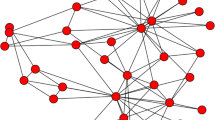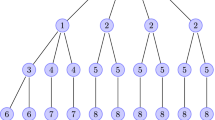Summary
Probabilistic ideas and methods from Newton's writings are discussed in § 1: Newton's ideas pertaining to the definition of probability, his probabilistic method in chronology, his probabilistic ideas and method in the theory of errors and his probabilistic reasonings on the system of the world.
Newton's predecessors and his influence upon subsequent scholars are dealt with in §2: beginning with his predecessors the discussion continues with his contemporaries Arbuthnot and De Moiver, then Bentley. The section ends with Laplace, whose determinism is seen as a development of the Newtonian determinism.
An addendum is devoted to Lambert's reasoning on randomness and to the influence of Darwin on statistics. A synopsis is attached at the end of the article.
Similar content being viewed by others
Abbreviations
- PT abridged :
-
Philosophical Transactions of the Royal Society 1665–1800 abridged. London, 1809
- Todhunter:
-
I. Todhunter, History of the mathematical theory of probability, Cambridge, 1865
Author information
Authors and Affiliations
Additional information
Communicated by A. P. Youshkevich
To the memory of my mother, Sophia Sheynin (1900–1970)
Rights and permissions
About this article
Cite this article
Sheynin, O.B. Newton and the classical theory of probability. Arch. Hist. Exact Sci. 7, 217–243 (1971). https://doi.org/10.1007/BF00357217
Received:
Issue Date:
DOI: https://doi.org/10.1007/BF00357217




